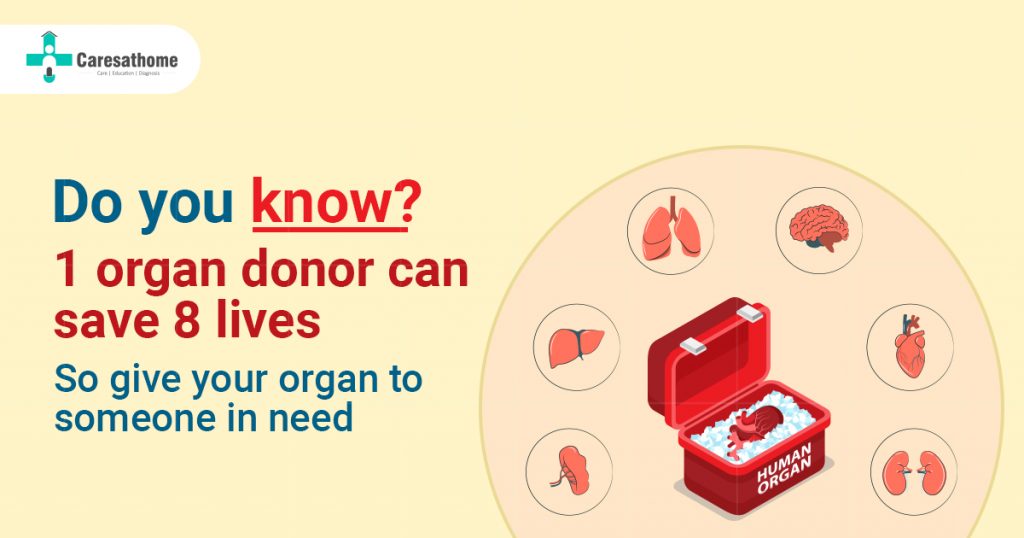Organ Donation: How One Donor Can Save Up to 8 Lives
Organ donation is one of the most selfless and impactful gifts a person can give. In the event of a tragedy, a single donor can save the lives of up to eight people and improve the lives of many more through tissue donation. Despite the life-saving potential of organ transplants, the number of people waiting for organs far exceeds the number of available donors. By becoming an organ donor, you can make a profound difference in the lives of others.
How Organ Donation Saves Lives
When a person chooses to donate their organs after death, their organs are transplanted into individuals suffering from life-threatening conditions like organ failure. These donations offer a second chance at life for people who may not survive without a transplant. Here’s a breakdown of how one donor can save up to eight lives:
- Heart: The heart can save the life of someone suffering from severe heart disease or heart failure. A heart transplant is often the only option for those with end-stage heart failure, giving them the chance to live a full and healthy life.
- Lungs: Two lungs can save two individuals with conditions like chronic obstructive pulmonary disease (COPD), emphysema, or cystic fibrosis. Lung transplants can drastically improve the quality of life and offer hope to those struggling with respiratory failure.
- Liver: The liver is a versatile organ. In some cases, it can be split between two recipients, allowing one donor to save two lives. Liver failure due to cirrhosis, hepatitis, or cancer can be a death sentence without a transplant.
- Kidneys: With two kidneys available for donation, they can each be transplanted into a different recipient. Kidney transplants are life-saving for those suffering from chronic kidney disease or kidney failure, conditions that affect millions of people worldwide.
- Pancreas: A pancreas transplant is often necessary for people with type 1 diabetes, where the pancreas no longer functions to regulate blood sugar levels. A transplant can restore normal insulin production, offering a better quality of life for patients with severe diabetes.
- Intestines: Intestinal transplants can provide a life-saving solution for people with severe digestive conditions, like short bowel syndrome, who can no longer absorb enough nutrients from food.
- Corneas: Though not life-saving in the traditional sense, corneal transplants can restore sight to individuals who are blind due to damage to their corneas. Vision restoration dramatically improves quality of life, allowing people to regain independence.
- Tissues and Skin: While not as well-known, tissue and skin donations are also vital. They can help burn victims, individuals needing reconstructive surgery, and those suffering from traumatic injuries by promoting healing and improving their physical well-being.
The Need for Organ Donors
There is an urgent need for more organ donors. According to health organizations, thousands of people die each year waiting for an organ transplant that never comes. The shortage of available organs has led to longer waiting lists and, unfortunately, preventable deaths. One person can make a massive difference by choosing to donate their organs.
Despite the high demand, many people are not registered as organ donors. In many cases, individuals do not realize the profound impact their decision could have on others. Becoming an organ donor can offer a legacy of life after death, ensuring that your final act helps others live.
How to Become an Organ Donor
Becoming an organ donor is simple. You can register as an organ donor in many countries, either online or by signing up through your local health department. In some places, you can also indicate your decision on your driver’s license. It’s essential to talk with your family about your decision, as they will be asked to confirm your wishes if the time comes.
By becoming an organ donor, you’re making a decision that could save multiple lives and help countless others in the process. It’s a choice that reflects the incredible power of generosity, and one that ensures your legacy continues in the most meaningful way.
The Impact of Your Decision
Organ donation is a gift of life. It’s a decision that goes beyond a simple act of kindness—it’s a chance to offer hope, restore health, and change the trajectory of someone’s life. Each donor is a hero to those who receive their organs, and their contribution has the potential to change the world, one life at a time.
If you are considering becoming an organ donor, take the step today. Your decision can save up to 8 lives and improve many more. Don’t let the opportunity to make a difference pass by. Be the change that gives someone else a second chance at life.

